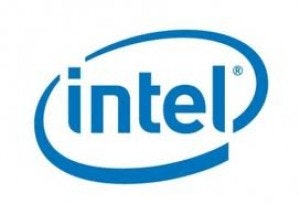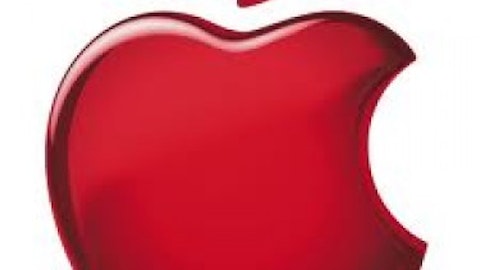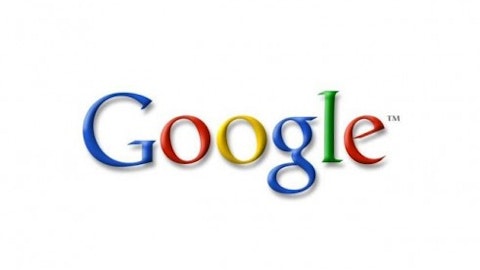Intel Corporation (NASDAQ:INTC) is set to take on television and cable companies with a new product. The idea isn’t getting much support from industry watchers, and it faces stiff competition in an already crowded market. Is this what Intel needs to turn its business around or is it just a distraction?
Suffering from Change
Intel is best known for making the chips inside personal computers. That was a great business while the PC was quickly being adopted, but now that PCs are a mature product, growth isn’t what it used to be. In fact, as more and more people start to use mobile devices to connect to the Internet, PCs could see years of sales declines before they find a stable base.

While players like Apple have fully embraced the mobile space, through tablets and cell phones, Intel Corporation (NASDAQ:INTC) has been late to the party. This has left the company’s shares trading at historically low levels. It also has many wondering if Intel is headed for the technology dust bin.
Television
There’s no question that television or at least video content, is an integral part of the future in technology. Netflix, Inc. (NASDAQ:NFLX) was one of the first companies to realize and act on this with its video streaming service. The move to streaming was a big one, since Netflix started as a mail-based DVD rental company. Now, however, the company’s DVD rental business is an afterthought in conversations.
What Netflix proved, however, is that customers are willing to pay for the privilege of controlling their video experience. For example, Netflix ushered in the concept of binge watching, in which a person will sit down and watch hours worth of the same television show. That is virtually impossible with the current business model of television stations. Netflix and its competitors also give customers the ability to watch on their own schedule, another impossibility with regular television.
Ripe for Change
Netflix and its brethren have clearly shown that the media business is ripe for change. However, how much change is a big question mark. Netflix, for its part, is working on creating its own content. This is a bold move to displace the industry leaders and control ever increasing content costs. The company’s CEO believes TV will migrate to the web and wants to be the first one there.
Apple, meanwhile, has tried, largely unsuccessfully, to launch a product dubbed Apple TV. However, it pretty much functions as a way to stream content to a TV, making it seem more like a fancy adapter between a TV and the Internet. Since more and more televisions are coming with their own Internet connections, the value of this is suspect.
Intel Corporation (NASDAQ:INTC) will face the same hurdle. One thing the device is trying to achieve, however, is a combination of live broadcast and archived video. Live is one major limitation of the Netflix service. Such things as Sports are massive draws and any service lacking that only ensures that television and cable still provide a vital service. So, Intel looking to get into live broadcasts is a great idea.
Showing live sporting events is one thing that The Walt Disney Company (NYSE:DIS) has been working on by offering live streaming of its ESPN service to cable customers. Note, however, that it hasn’t simply given this content to cable companies. Customers have to go to an ESPN-branded site to get it. This shows the value of the content, and the difficulty new players are likely to face in gaining access to it.
Why Partner with Intel
Indeed, the issue Intel seems to be facing is getting content. It’s easy to understand why: An industry that is already facing pressure is being asked to partner with a service that is pretty much designed to destroy the current business structure of that industry. Who would sign up for that?
Intel is coming at this with high hopes, but it faces a massive uphill climb if it is going to succeed. If Apple hasn’t been able to pull this off, it is hard to believe that Intel, with absolutely no experience in the space, will. That leaves the question of how bad could it be?
Luckily for Intel, the company is extremely large and can handle a few notable distractions while it continues to work on its core chip business, particularly the effort to shift more toward mobile. In this, the company is similar to Microsoft Corporation (NASDAQ:MSFT) which has had many notable duds in its time, including the ill-fated Zune music player. So, even if Intel fails, it probably won’t be too big an issue for the company. Shareholders, however, would have a right to gripe about wasted money.
Maybe it Works
One thing to remember about Microsoft, however, is that it has made some out of left field bets that have worked out well. Take Xbox, for example. That product wasn’t an instant success, but is now one of the company’s core franchises. Intel has the money to stick around long enough to turn a television product into a success. If the product turns out to be good enough, it might even get the industry behind it, after a time.
So, the risks of failure are there, but probably not notable enough to materially hurt the company. The chance of success is remote, but if the long shot works it could be very profitable. Perhaps, in the end, the risk/reward balance is actually not as bad as it seems.
The article Why This Chipmaker’s Taking on Television originally appeared on Fool.com and is written by Reuben Gregg Brewer.
Copyright © 1995 – 2013 The Motley Fool, LLC. All rights reserved. The Motley Fool has a disclosure policy.





